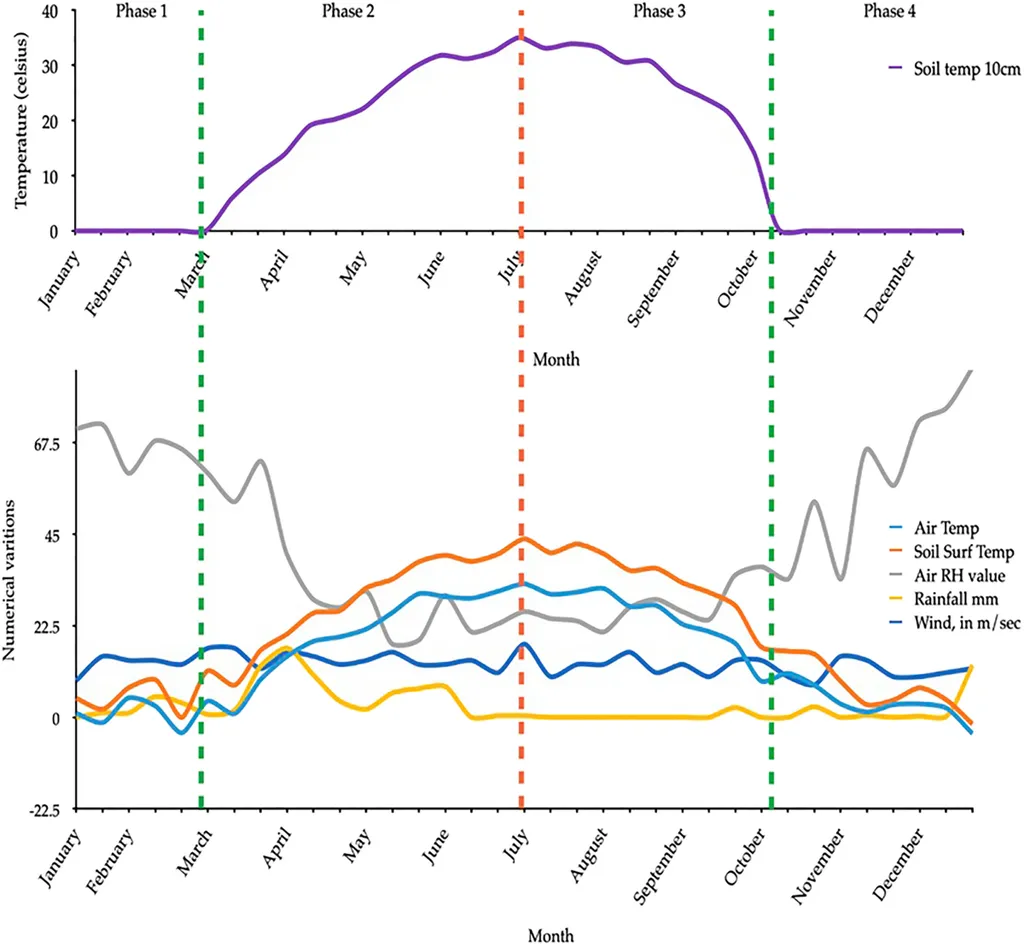In the heart of Iraq’s Kurdistan region, a groundbreaking study is reshaping how we predict soil temperature, a critical factor for sustainable agriculture, energy generation, and ecological research. Meysam Alizamir, a researcher at the Institute of Research and Development, Duy Tan University in Da Nang, Vietnam, has pioneered a novel approach using hybrid deep learning models to forecast subterranean thermal conditions with remarkable accuracy.
Alizamir and his team evaluated various advanced deep learning models at six distinct soil depths across two climate monitoring stations, Darbandikhan and Chamchamal. The study, published in the journal *Engineering Applications of Computational Fluid Mechanics* (translated from its original title), reveals that different hybrid models excelled at predicting soil temperatures at various depths. For instance, the BiGRU-CNN model outperformed others at shallower depths (05 cm and 30 cm) in Chamchamal, while the GRU-CNN and LSTM-CNN models proved superior at deeper layers (50 cm and 100 cm, respectively).
The implications for the energy sector are profound. Accurate soil temperature predictions are crucial for optimizing geothermal energy systems, which rely on stable subsurface thermal conditions. “Our models provide a reliable tool for estimating soil temperatures based on readily available meteorological data,” Alizamir explains. “This can significantly enhance the efficiency and sustainability of energy generation processes.”
The study also employed SHAP (SHapley Additive exPlanations) values to identify the most significant predictive factors, offering insights into the complex interplay of variables influencing soil temperature. This methodology not only improves prediction accuracy but also enhances our understanding of the underlying thermal dynamics.
The research highlights the potential of hybrid deep learning models in revolutionizing soil temperature forecasting. As Alizamir notes, “The proposed methodologies offer viable solutions for soil temperature forecasting, demonstrating substantial potential as reliable tools for accurately estimating subsurface thermal conditions based on available parameters.”
The commercial impact of this research is substantial. Energy companies can leverage these models to optimize their operations, reduce costs, and enhance sustainability. Moreover, the agricultural sector can benefit from precise soil temperature predictions to improve crop management and yield.
As we look to the future, this research paves the way for more sophisticated and accurate thermal forecasting tools. The integration of deep learning models into everyday agricultural and energy practices could herald a new era of efficiency and sustainability. Alizamir’s work is a testament to the power of advanced technologies in addressing real-world challenges, offering a glimpse into a future where data-driven insights drive progress and innovation.

